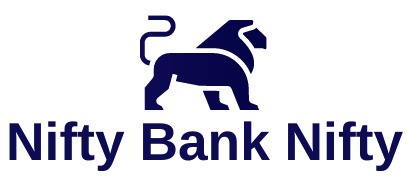In recent years, the Indian stock market has witnessed a surge in retail participation, with a growing number of individuals looking to invest in equities. Zerodha and Upstox stand out as two prominent players in the online brokerage space, offering a platform for investors and traders to buy and sell securities. This article aims to compare Zerodha and Upstox, highlighting their advantages and disadvantages to help potential users make an informed decision.

- Trading Platforms:
- Zerodha: Zerodha provides a user-friendly trading platform called Kite, known for its simplicity and intuitive design. It offers features like advanced charting tools, technical analysis, and a mobile app for on-the-go trading.
- Upstox: Upstox also offers a user-friendly platform with advanced charting tools. Its flagship trading platform, Upstox Pro, is favored for its speed and efficiency. Additionally, Upstox provides a mobile app, enabling traders to stay connected to the market from anywhere.
- Brokerage Charges:
- Zerodha: Zerodha is known for its transparent and low-cost brokerage structure. It introduced the concept of flat-rate brokerage, where users are charged a fixed fee per trade, making it cost-effective for both beginners and seasoned traders.
- Upstox: Upstox follows a similar model of low-cost brokerage. The competitive pricing structure makes it an attractive choice for traders looking to minimize transaction costs.
- Account Opening Process:
- Zerodha: Zerodha has simplified the account opening process through its online platform. Users can complete the KYC process digitally, making it convenient for new investors to get started quickly.
- Upstox: Upstox also offers a smooth and hassle-free account opening process. The online KYC verification process enables users to open an account without the need for physical documentation.
- Margin and Leverage:
- Zerodha: Zerodha provides margin trading facilities, allowing traders to take positions that exceed their account balance. The margin requirements vary across different segments and trading instruments.
- Upstox: Upstox offers margin trading with varying leverage levels, enabling users to amplify their trading potential. However, it’s crucial for traders to understand the risks associated with leverage.
- Customer Support:
- Zerodha: Zerodha has received mixed reviews regarding its customer support. While it offers online support through tickets and email, some users have reported delays in issue resolution.
- Upstox: Upstox is known for its responsive customer support. Users can reach out through multiple channels, including live chat, email, and phone support, ensuring timely assistance.
- Technology and Innovation:
- Zerodha: Zerodha has been at the forefront of technological innovation in the Indian brokerage industry. It continuously updates its platforms with new features and improvements, staying in tune with market trends.
- Upstox: Upstox also emphasizes technological innovation, aiming to provide a seamless trading experience. Regular updates to its trading platforms reflect a commitment to staying technologically competitive.
- Research and Education:
- Zerodha: Zerodha provides educational resources and market insights through its Zerodha Varsity platform. This initiative aims to educate users about various financial instruments, market analysis, and trading strategies, making it a valuable resource for both beginners and experienced traders.
- Upstox: Upstox offers educational content through its Knowledge Hub, providing articles, webinars, and tutorials to help users enhance their trading knowledge. The platform also includes research reports and market analysis tools to assist traders in making informed decisions.
- Market Coverage:
- Zerodha: Zerodha provides access to a wide range of financial instruments, including equities, commodities, currencies, and mutual funds. The platform covers multiple exchanges, offering a comprehensive market coverage for diverse trading and investment strategies.
- Upstox: Upstox similarly covers various asset classes, providing access to equities, commodities, currencies, and more. Users can trade on major Indian exchanges, ensuring a broad market coverage to cater to different trading preferences.
- Security and Reliability:
- Zerodha: Zerodha is known for its robust security measures and reliability. The platform has implemented encryption protocols and two-factor authentication to secure user accounts. Additionally, it invests in technology infrastructure to ensure a stable and reliable trading experience.
- Upstox: Upstox places a strong emphasis on security, employing encryption technologies and secure authentication methods. The platform invests in high-end servers to ensure minimal downtime and a reliable trading environment for its users.
- Mobile App Experience:
- Zerodha: Zerodha’s mobile app is well-regarded for its user-friendly interface and comprehensive features. It allows traders to execute orders, access real-time market data, and manage their portfolios seamlessly from their mobile devices.
- Upstox: Upstox’s mobile app is designed for speed and efficiency, providing a smooth trading experience on smartphones. The app includes features like advanced charting, order placement, and portfolio tracking, catering to the needs of mobile-centric traders.
- Community and Social Trading:
- Zerodha: Zerodha has introduced features like “Coin,” a platform for mutual fund investments, and “Varsity,” an educational initiative. While not strictly social trading, these features contribute to building a community of informed investors.
- Upstox: Upstox has integrated social trading features that allow users to follow and copy the trades of experienced investors. This can be particularly beneficial for novice traders looking to learn and replicate successful strategies.
Conclusion:
Both Zerodha and Upstox have played pivotal roles in revolutionizing the landscape of online trading in India. The choice between the two largely depends on individual preferences, trading styles, and specific requirements. Traders and investors should carefully assess the features, costs, and customer service aspects to determine which platform aligns best with their financial goals. As the market evolves, these platforms are likely to continue innovating to meet the changing needs of investors in India’s dynamic financial landscape.

